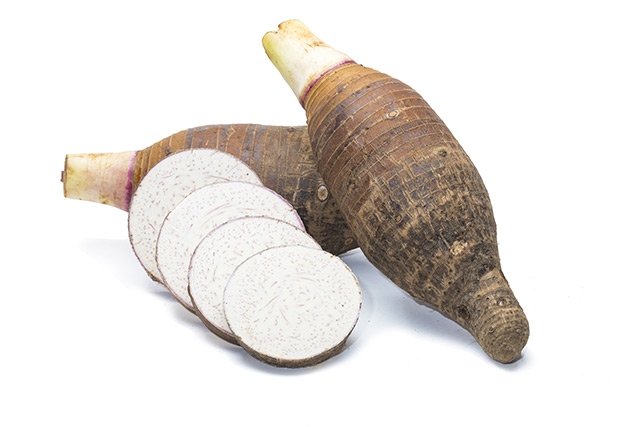
Advertisement
The benefits of prebiotics cannot be overstated. Its positive effects don’t stop with humans – it can even benefit animals as well. A study published in Food Science and Human Wellness looked whether taro leaves are an effective a source of prebiotics after they have been pre-treated with an enzyme.
In particular, the study looked at the feasibility of improving the quality of taro leaves by using them with pre-treated enzymes as a prebiotic in animal feed. To conduct the study, the researchers performed a number of experiments and made sure to track their progress on all levels. After taking a look at their results, the researchers concluded that enzyme-treated taro leaves could indeed be used as prebiotic in animal feed.
It’s important to note that taro leaves, along with taro root, are already known to hold some beneficial properties. Taro root, in particular, is known to be an excellent source of carbohydrates, potassium, and vitamin B-complex. However, it’s a poor source of ascorbic acid and carotene. In any case, the focus of this study is on taro leaves, and the main objective is to find out if there is any improvement in them after applying the methods specified by the researchers.
The researchers decided to perform simple steps to conduct their study. First, they gathered the taro leaves then cut and dried them in a hot air oven at 60 C for 24 hours. This particular experiment consisted of two treatments, and each one of them was replicated a total of three times. Afterward, the taro leaves were treated with commercial enzyme – Hemicell – at two different levels, and then the taro leaves samples were left in an incubator at 55 C for six hours.
Once that was finished, the researchers took the samples and centrifuged them for an unspecified amount of time at a speed of 10,000 rpm. Once finished, the researchers collected the supernatant sample for reducing sugar and oligosaccharides analysis. What was left of the solid sample was taken to dry in a hot air oven at 60 C for another 24 hours, before being stored at 4 C before proximate analysis.
After all of the treatments and experiments, the researchers gathered all of the data that they could and tabulated it all for easier analysis. What they learned was that the different treatment methods left the taro leaves with different chemical compositions all throughout the study. The only properties that weren’t deemed too different were moisture, crude protein, and cellulose.
When it came to cultivating beneficial bacteria and pathogenic bacteria that can be good for animal stomachs, the glucose products of enzyme-treated taro leaves proved quite effective, according to the researchers. Based on their data, higher growth of E. coli was also observed in the enzyme treatment group when compared with the glucose group.
In conclusion, the researchers stated rather plainly that enzyme hydrolysis could effectively break down the fiber content of taro leaves, which helps them become more effective as prebiotic in animal feed. It also comes with the accompanying effect of releasing oligosaccharides, which end up increasing growth of beneficial microbes in animal stomachs. The one negative that the researchers pointed out is that it doesn’t do anything to decrease the growth of pathogenic microbes such as E. coli. These results go a long way toward proving other studies right. The bottom line is that treated taro leaves can indeed be used as effective prebiotics in animal feed.
Sources include:
Advertisements







